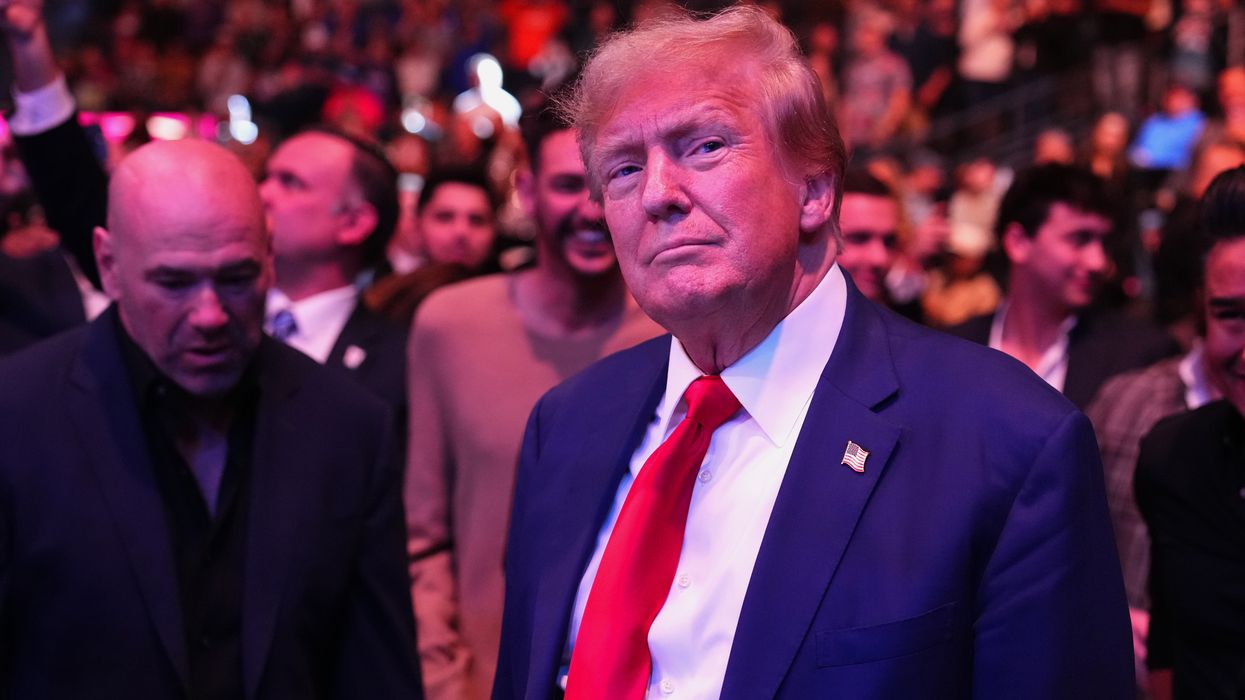Becvar is co-publisher of The Fulcrum and executive director of the Bridge Alliance Education Fund.
In another pivotal moment, the Supreme Court decided Wednesday to take up former president Donald Trump’s claim of immunity from prosecution for his efforts to subvert the 2020 election. This development, arriving as we edge closer to the 2024 presidential election, fuels further delays and injects a new level of uncertainty, casting a shadow over the electoral landscape. It’s increasingly perceived as a strategic maneuver by Trump to entangle legal proceedings with the electoral timeline, complicating the discourse and deepening the national polarization ahead of a critical election. The scenario is one glimpse into the broader threat of Trump’s 2024 candidacy.
On Monday, Just Security published The American Autocracy Threat Tracker, a new public resource that meticulously catalogs the plans, promises and propositions being developed by Trump and his circle. The tracker amalgamates data from media outlets, resources such as Protect Democracy’s The Authoritarian Playbook, and direct information from the Heritage Foundation’s Project 2025. Noteworthy is its inclusion of data from Trump’s campaign website and Truth Social – as well as an always-updating searchable data set of all of Trump’s Truth Social posts.
This tracker is more than a repository; it’s a call for critical engagement, starting with its initial chapters that paint a vision of the beginning of Trump’s potential second term, marked by authoritarian pledges to serve as a “ dictator on day one ” to enforce his plans to “close the borders” and “drill, drill, drill.” It equips citizens and organizations with a unified framework for dissecting the realities of the Republican frontrunner’s campaign narratives, fostering a necessary national dialogue.
Amidst this backdrop, a January 2024 survey conducted by the University of Massachusetts Amherst and YouGov produced a startling finding: a significant portion of respondents showed a perplexing openness to Trump’s authoritarian undertones. This result contrasted sharply with a broader aversion to dictatorship revealed in a separate Economist and YouGov poll from December 2023, potentially indicating a nuanced, though troubling, interpretation of “temporary autocracy.” Such findings continually underscore an alarming dissonance in public sentiment towards the foundational principles of American democracy.
The discourse on democracy’s relevance in contemporary America is reaching an inflection point. Recent polls, including a longitudinal survey by The Democracy Fund, indicate a waning commitment to democratic norms among Americans, a sentiment further corroborated by Danielle Allen’s insights published last week in The Washington Post. Allen’s analysis reveals a generational divergence in the valuation of democracy, posing a stark challenge: The sustainability of democracy hinges on the people’s desire for it.
In my tenure with the Bridge Alliance Education Fund, my underlying quest has been to identify a unifying thread that could weave together the diverse strands of the healthy democracy ecosystem. Our mission is to enhance and amplify the work of those working in civic education, engagement, electoral reform, social cohesion and trusted information. It is intuitive that these spheres of practice enhance one another and are all vital to a healthy society and the institutions that serve it.
However, the collective insight and power of the ecosystem can only coalesce into a movement with at least one specific, shared goal. We must continue focusing on a wide range of work areas to repair our country's social and political infrastructure. Still, it's also essential that we consider our work aligned with the goal of a constitutional democracy supermajority. That means a supermajority of citizens agreeing, as Allen puts it, on “the basic rules of the game.” Inside the bounds of those rules we will disagree, but hopefully we can disagree better within the stability of those boundaries.
The path forward demands more than passive endorsement; it calls for active defense and promotion of core democratic values, including “constitutionalism, the rule of law, inclusivity, nonviolence, and respect for the electoral process”. It is not just possible but imperative for us to rise to this challenge, fostering a culture of dialogue and advocacy that strengthens, rather than erodes, the bedrock of our democratic republic.




















Trump & Hegseth gave Mark Kelly a huge 2028 gift